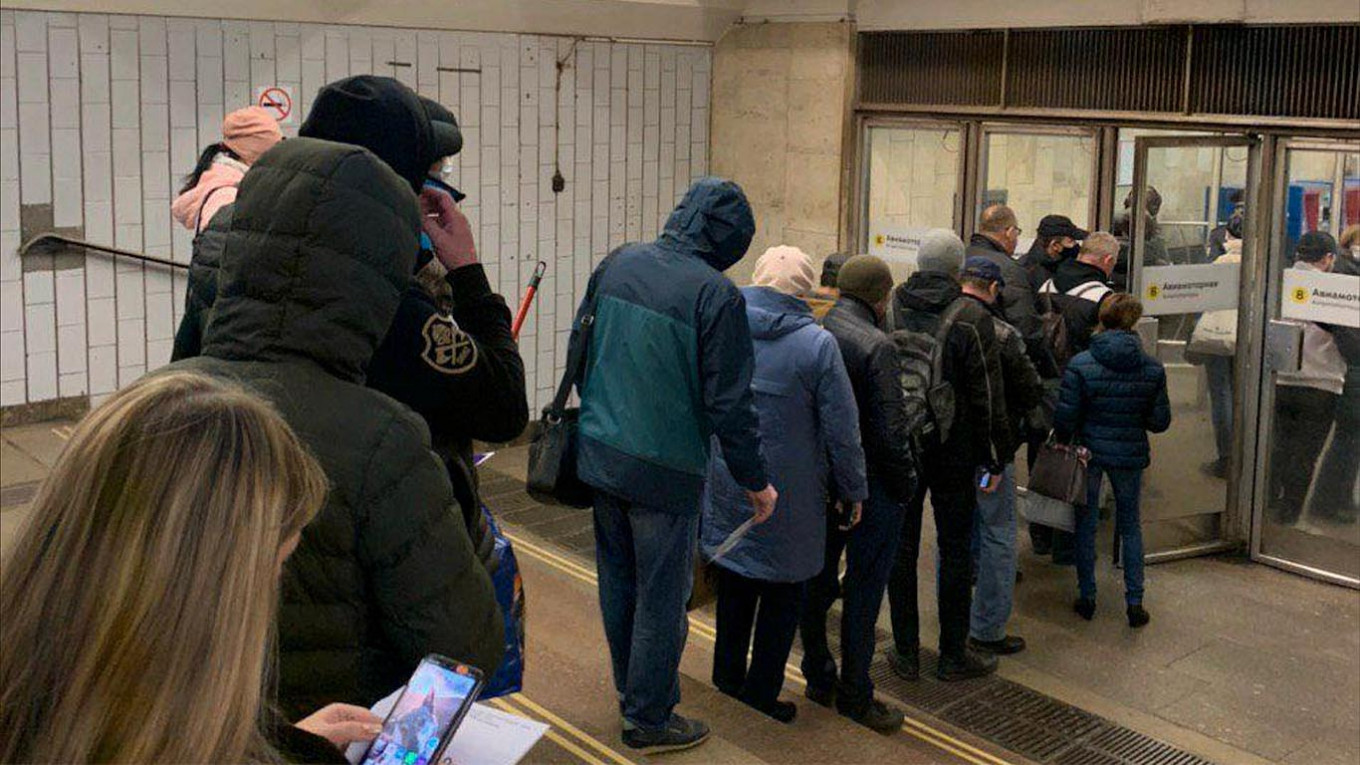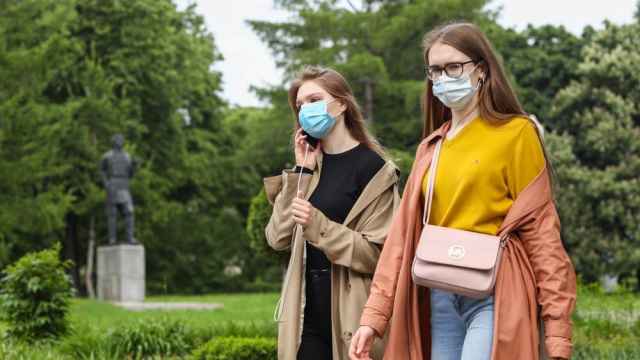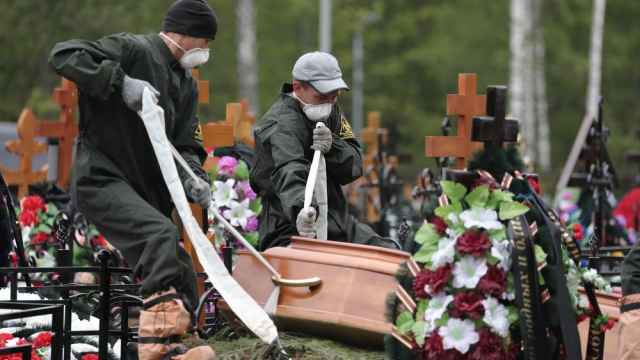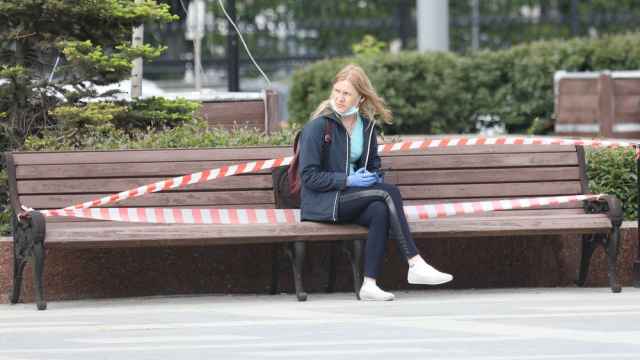It started out like a bad dream: sleepwalking into an abyss.
On Saturday, April 11, Moscow Mayor Sergei Sobyanin announced the introduction of special digital passes in Moscow, starting on Wednesday, April 15.
The panic kicked off immediately, caused by confusion and a lack of detail in the mayor’s decree — and many Muscovites who had left the city for self-isolation in their country houses rushed back to the city.
They were right to be over-cautious, as they were met with police checkpoints. Policemen were busy stopping cars but provided controversial explanations: Rumors spread that the goal was to prevent cars with non-Moscow license plate numbers from entering the city, but checks were arbitrary and explanations varied from checkpoint to checkpoint.
Confusion was gathering momentum when a new app was discovered the same night, created by the Digital Development Ministry, called "Gosuslugi STOP Coronavirus.” When Muscovites started downloading it, they at once saw that the app required them to get a new pass for every trip to a shop or pharmacy and to walk the dog — and this was contrary to Sobyanin’s statement that the pass would be needed only to move in a car.
On Monday, the Moscow government’s phone lines got jammed, with the city authorities claiming it was due to the stupidity of Muscovites.
The same happened with SMS text registration — and the authorities, yet again, claimed Muscovites were too dumb to send a proper SMS text to get a valid digital pass. At the same time, many people tried to get a digital pass with a QR code through the city government website, mos.ru. The website collapsed several times, with the authorities quick to blame DDoS attacks carried out by hackers from abroad.
On Tuesday, the Moscow government was forced to admit that many of those who did manage to get the passes did so unfairly, and canceled 900,000 passes out of 3.2 million issued by the end of Monday.
That immediately posed a question: If the government was OK with 3.2 million legit holders of digital passes moving freely around Moscow, what was the point of introducing the digital pass system at all?
The justification of the need for the passes was provided the day before Sobyanin announced their introduction — city authorities claimed that on April 10, 3.5 million people left their homes for a long period of time, and this could “pose a potential risk for 6-9 million people.” It seems hardly effective to issue 3.2 million passes to eliminate the threat of having 3.5 million people out of their apartments.
On Tuesday the city authorities also experienced new problems with issuing the passes, and again blamed hackers.
Confusion multiplied when categories of citizens exempt from needing a pass — lawyers, judges, journalists — found themselves tortured by rumors that their legal papers would not be enough for them to drive, and that the video surveillance system which Sobyanin is so proud of having built up would fine their cars every time they pass a camera. So they started collecting lists of their cars to send somewhere — to the professional associations, the city government? Or the Interior Ministry?
Yesterday, the crisis was complete when the passes became a requirement — long queues lined up at the entries of almost every Moscow metro station.
People were stuck together in halls and underpasses waiting patiently for policemen, stationed at the doors, to thoroughly check their passes — unlike in China, the Russian policemen were not given scanning devices, so they checked every pass manually, sometimes making a phone call somewhere, one after another, for minutes and minutes.
If the virus had sentience, it would hardly imagine a better environment for spreading and contaminating than these underground corridors and halls packed of people.
On May 1, 1986, four days after the fourth reactor of the Chernobyl nuclear power plant erupted, Kiev held a massive May Day rally in the center of the city. Thousands and thousands of people were exposed to radiation as the wind brought more and more dust from the burning nuclear station.
The decision of party officials to hold the mass rally was the manifestation of incompetence, criminal stupidity and the Soviet regime’s complete inability to make quick decisions. Even those Soviet citizens who were not very interested in politics in 1986 were shocked by the party’s decision to conduct the mass rally despite the catastrophe. It completely destroyed trust in the Communist party and seriously undermined Soviet leader Gorbachev’s credibility.
But Gorbachev and Kiev’s party officials didn’t have social media to deal with.
While Putin’s spokesperson Dmitry Peskov was quick to place the Kremlin’s support behind Sobyanin, blaming Muscovites and Moscow’s visitors — them again! — of “lacking discipline,” with punishing the police out of the question, Russians were sharing videos from the metro and exchanging angry comments.
They were also sharing jokes mocking the authorities, like one made by journalist Roman Badanin: “Stations of the Moscow metro are experiencing unprecedented DDoS attacks organized from abroad” as a caption to photos of the long queues.
These days, another joke has become incredibly popular in Moscow — a 1980s video posted on YouTube of the late Soviet-era comedian Mikhail Zhvanetsky, popular to this day, called “The Turnstiles.” In it, Zhvanetsky spoke about the possibility of introducing a turnstile at the end of every street, moving quick to the suggestion of introducing a pass to leave one’s apartment and go to the shop, providing spare apartment keys to the authorities and so on. Zhvanetsky ended by remarking that after the introduction of all these measures, one would be more embarrassed to not be checked than by the checking itself — fearing to fall out of line.
This depressing prediction of a gradual acceptance of increased government control could have possibly come true in 2020 Moscow. But the authorities’ sheer incompetence coupled with bureaucratic arrogance ruined this chance.
A Message from The Moscow Times:
Dear readers,
We are facing unprecedented challenges. Russia's Prosecutor General's Office has designated The Moscow Times as an "undesirable" organization, criminalizing our work and putting our staff at risk of prosecution. This follows our earlier unjust labeling as a "foreign agent."
These actions are direct attempts to silence independent journalism in Russia. The authorities claim our work "discredits the decisions of the Russian leadership." We see things differently: we strive to provide accurate, unbiased reporting on Russia.
We, the journalists of The Moscow Times, refuse to be silenced. But to continue our work, we need your help.
Your support, no matter how small, makes a world of difference. If you can, please support us monthly starting from just $2. It's quick to set up, and every contribution makes a significant impact.
By supporting The Moscow Times, you're defending open, independent journalism in the face of repression. Thank you for standing with us.
Remind me later.








